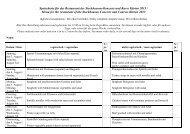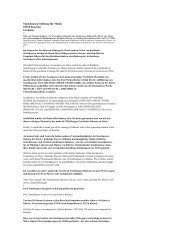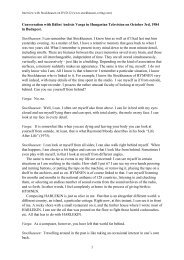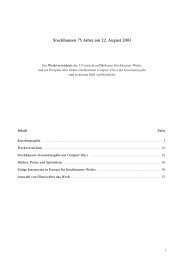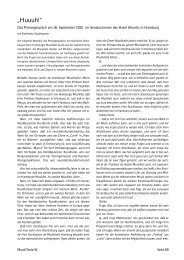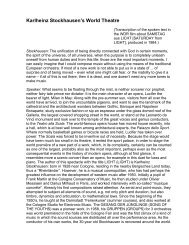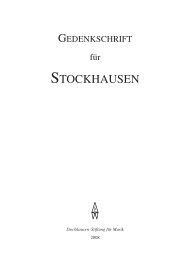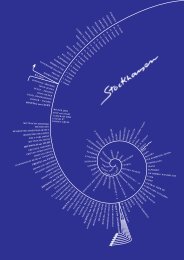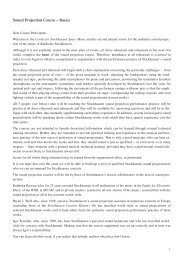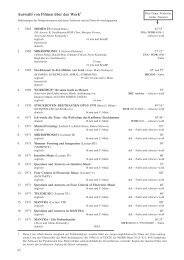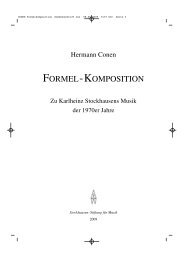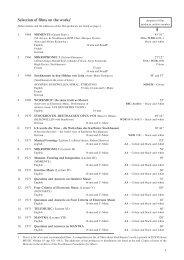MOMENTE - English Translation (PDF)
MOMENTE - English Translation (PDF)
MOMENTE - English Translation (PDF)
You also want an ePaper? Increase the reach of your titles
YUMPU automatically turns print PDFs into web optimized ePapers that Google loves.
Anyway, I didn't understand anything...<br />
I started to compose <strong>MOMENTE</strong> in January 1962. During the first week, I planned<br />
out a general form. A group of moments is called "M-Moments", it means moments<br />
which are concentrated on melodies.<br />
A second group, "K-Moments", (in German, we say Klang), moments concentrated on<br />
the sound, the timbre.<br />
And the third group, moments concentrated on the durations, "D-Moments".<br />
Then I took some pages of the score, I cut them and I slipped theses pieces in slits I've<br />
cut in other pages... I call them inserts. In order to have, from time to time, a memory<br />
of what happened and to create a hope, from time to time. A hope for the moments to<br />
come.<br />
Around the K, the same thing, a M with a component... A K with a component M... K<br />
with a component D... And... KM... KM(d)... Same thing here: a KD, a KD(m)... One<br />
already sees all this, as the influences of the other moments within a moment which is<br />
derived from a central moment.<br />
It's quite simple: when I compose, I think.<br />
And when I talk, when I verbalize what I've done, I can only talk about my<br />
thinking.<br />
I've listened to <strong>MOMENTE</strong>. It gives shocks. Rather erotic shocks, aren't<br />
they?<br />
It's the reaction of the audience that makes you think it's erotic? Or what?<br />
4<br />
REHEARSAL<br />
REHEARSAL



